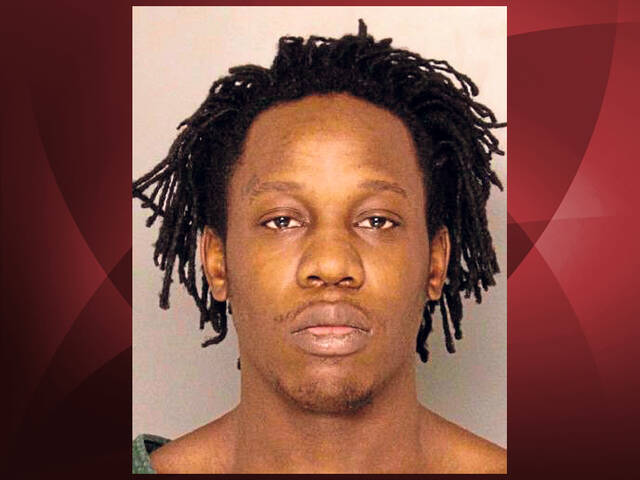A judge on Thursday ruled against the Allegheny County Public Defender’s office in its bid to prohibit the district attorney from seeking death against the man accused of killing an Uber driver in February.
The public defender’s office, which is representing Calvin Crew on homicide charges in the Feb. 10 killing of Christi Spicuzza, filed a motion on their client’s behalf last month. Attorneys alleged that the district attorney’s office violated a gag order in the case by disseminating video and documents to the media.
The motion contended that the office improperly provided a video of dashboard camera footage from inside Spicuzza’s car that night to reporters following its introduction at Crew’s March 30 preliminary hearing, as well as the DA’s notice of its intention to seek capital punishment.
In its motion, the public defender’s office claimed that the appropriate remedy for the alleged violation was for the court to prohibit the prosecution from seeking death.
Following a hearing on Thursday, Common Pleas Judge Edward J. Borkowski rejected all of the public defender’s arguments on the issue and denied their motion.
Crew, 23, of Pitcairn, was charged by Allegheny County Police for killing Spicuzza after she picked him up in her car the night of Feb. 10. Her dashboard camera recorded footage of Crew putting a black handgun to her head as she begged for her life, police said.
Within an hour and 15 minutes, Spiccuza, 38, of Turtle Creek, had been shot to death and her body left in a wooded area of Rosecrest Drive in Monroeville.
Her car was found two days later, and her body four hours after that.
The camera was recovered on a Penn Hills Street, police said. Crew was charged in connection with the slaying on Feb. 17.
The video from inside the car was played at Crew’s preliminary hearing. As is practice when exhibits are admitted in court, DA’s office spokesman Mike Manko provided copies of the video to reporters who requested it.
Lisa Caulfield, of the public defender’s office, called Manko to testify about the matter at Thursday’s hearing.
“Once something is played in open court, it becomes public record and is available to the media,” he said.
Manko said that he did not provide the video to any reporters until after the hearing concluded at 5:46 p.m.
However, Alexis Climes, a multi-media and legal analyst for the public defender’s office, testified that WPXI tweeted about the video at 5 p.m. that day - before the hearing had ended.
However, on cross-examination by Deputy District Attorney Kevin Chernosky, Climes agreed that clicking on the link embedded in the tweet takes viewers to a story posted by WPXI at 11:18 p.m.— more than five hours after the hearing concluded.
Caulfield argued to the court that Manko released the video prior to the hearing ended. However, Climes was unable to verify that claim.
Caulfield did not call anyone from WPXI to testify.
Instead, she argued that pre-trial publicity in the case would prohibit Crew from receiving a fair trial.
“The defendant was never given a chance to object before the video was released,” she said. “There’s a burden on the parties subject to the gag order to remain in compliance.”
Caulfield suggested that the judge should have reviewed the video prior to its release.
“Did anyone think before doing this? Not just the legality but the human decency?” she asked.
Chernosky argued that there was no violation of the gag order. But, even if there had been, he said, the appropriate sanction would be contempt, not prohibiting his office from pursuing capital punishment.
In reaching his decision, Borkowski told Caulfield that providing videos and exhibits to the media has been common practice in the courthouse for more than 15 years.
“You have met neither your burden of production nor persuasion in the matter,” he said. “Those claims are denied.”
Borkowski also denied a request by the public defender’s office to withdraw from representing Crew because of a lack of qualified staff to handle capital cases.
The judge said that the office is currently only representing two other defendants in death-penalty cases, and that given the office’s resources - including investigators and social workers - he believed adding one more would not be unreasonable.
Further, he noted that the reason the public defender’s office does not have qualified staff is of their own making.
“You allowed their certification to lapse,” Borkowski said. “I’m not going to reward that aspect of mismanagement by allowing you to withdraw.”








